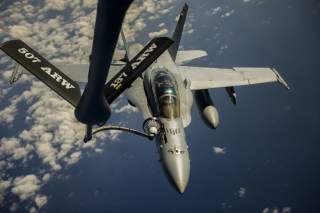The ISIS Challenge: A Tough Problem, Even Tougher Solutions
The Islamic State presents the Middle East and America with an immense challenge. The possible solutions won't be easy to implement.
There are indeed strict limits to what American leaders can do. Whatever they do, they should appreciate that they have lost the trust of most Iraqis. At an early stage of the negotiations to replace Maliki, American officials conceded that the American imprimatur might be the kiss of death for any substitute candidate. Probably this did not hinder American diplomats from scheming behind the scenes, but it is a real political force that seriously weakens the capacity of the United States to shape events. To say that there are limits to what the United States can realistically achieve, however, does not mean that it should attempt nothing. In particular, it seems a reasonable aim to work with the Shia to prevent ISIS from strangling Baghdad and to ensure that the Kurds have effective means of self-defense.
I am by strong inclination a noninterventionist, and so put forward ideas for U.S. reengagement in Iraq with real trepidation. American airstrikes and the provision of weapons are commencing without any change in the larger U.S. policy that demonizes Syria and Iran. That is a huge demerit. Nor do we have any assurance that military operations with ostensibly limited aims will not suddenly transform into much larger enterprises, a known propensity of the U.S. security establishment. These are good reasons for staying out. Still, it would be a moral and political calamity were Baghdad, a city of some seven million people, to be taken, sacked or destroyed by the Islamic State. To prevent that (or similar catastrophes in the north), the United States should help the locals help themselves, but should not rule out U.S. air strikes if necessary to defend a critical position. Above all, the United States needs to reconsider its hostility to Assad’s Syria and Rouhani’s Iran, without whose cooperation the containment of the Islamic State will be far more difficult.
The United States has enjoyed for over a decade an artificial position in Iraq and the Levant. Its larger system of alliances identified it with the Sunnis—with Turkey, Jordan, Saudi Arabia and the Gulf States. Israel’s enmity toward the greatest of the Shia states, Iran, strongly reinforced this pro-Sunni tilt in U.S. policy. As part of its self-regard, however, the United States had to follow through, after its 2003 invasion of Iraq, on the creation of a democracy, which meant a majority Shia state with close ties to Iran. That, in turn, alarmed the Sunni Gulf states and encouraged them to think that the overthrow of Assad was imperative, a rebellion that created the space within which ISIS metastasized. Now that the political movement known as ISIS has arrived, the United States also needs to “reach across the aisle,” just as it is urging those Iraqi parliamentarians to do.
David C. Hendrickson is professor of political science at Colorado College. He is the author of Union, Nation, or Empire: The American Debate over International Relations, 1789-1941 (University Press of Kansas, 2009).
Image: Flickr/Official U.S. Navy/CC by 2.0

